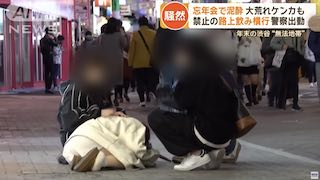Nov 26 (newsonjapan.com) - Gambling hasn't always been so welcome in Japan.
Of course, for many years now both foreigners and citizens of the country have had the opportunity to enjoy many gambling-type activities. Pachinko, an arcade game, is incredibly popular across the country, with thousands of pachinko parlours open across the country. There's also lottery and bingo, horse racing, car racing, bicycle racing and boat racing for patrons to bet on. The difference between these gambling activities and others is that they're not actually seen as real gambling.
While pachinko closely resembles video slots, you don't actually get paid out in cash. If you win pachinko you can choose to be awarded a special token, which can be taken off premises and exchanged for cash, making it a legal loophole for gamblers. Other legal gambling options like lottery and bingo and horse racing are run through the federal government.
Things have been changing though. On July 20 2018 a new legislation, two decades in the making, saw gambling resorts become legalised. The loophole, in this instance, was that the casinos be part of ‘integrated resorts' — which include not just the casinos themselves but hotels, entertainment and conference facilities. Three casino licenses were initially issued, with a 30% gaming tax to be paid to both the central and local governments.
There is talk of potential changes to come. One of the big questions involves games that aren't fully about chance, but have skilled elements involved — the biggest of which is poker.
Is poker chance or skill?
Poker is one of those games that, when played alongside other games like blackjack, craps, roulette and slot machines, seems like it would be a game of chance.
And for those who are only just learning how to play poker, showing up at a table alongside other long term poker players means you might not have the best shot at winning. But poker is in fact a game that requires an incredible amount of skill, even if there is some luck involved in the short term.
One of the reasons poker is a game of skill and not chance, is because unlike many other games you might encounter at a casino, poker is played against other players, not the house itself. The house (as in, the casino) provides its players the means of playing the game, but the majority of the profits are kept between the players themselves. And, unlike luck-based games like slot machines, the game itself is one you can get better at over time.
Chris Moneymaker, the winner of the 2003 World Series of Poker Main Event said: “The beautiful thing about poker is everyone thinks they can play.â€
Of course, many people do. New beginners are trying out their luck online, every day. In 2013 alone poker played online generated an estimated £2.8 billion in gross winnings globally — meaning that millions of players are getting involved in the game.
Many of these new online players are inspired by the professional poker players they see on television, like Chris Moneymaker, Daniel Negreanu and Erik Seidel. When you see these sorts of players making big wins on the world stage, it's tempting to want to get involved in it. And the better you are at the game, the more likely you are to have consistent wins and great results. It can take years and years of practice to get as good as some of the greats were at the start. The point is, that unlike other gambling games, you can get better at it over time. And it's worth a shot.
But will it be legalised in Japan?
While Japan is set to open three integrated resorts, it doesn't necessarily mean that gambling laws as a whole will loosen across the country. And while poker is a skilled (rather than chance-based) game it is still considered gambling — there is after all, the element of risk as well as the exchange of money involved.
The integrated resorts may lead to larger changes around Japan's gambling laws in the future. Some financial forecasts predict that Japan's gaming market, estimated at $20 billion a year, will eventually bypass Macau and Las Vegas to become the largest casino market in the world. With three locations to be licensed, Japan is looking to attract the interest of the world's top casino companies looking to expand, and expect the mega resorts to be completed by 2020. International visitors will benefit from free entry to the integrated resorts, while local residents will be charged $50 and be restricted to three visits per week in a bid to prevent gambling addiction.
However, despite the opening of the three integrated resorts across the country, it is still unlikely that poker will become a widespread legal activity in Japan.














